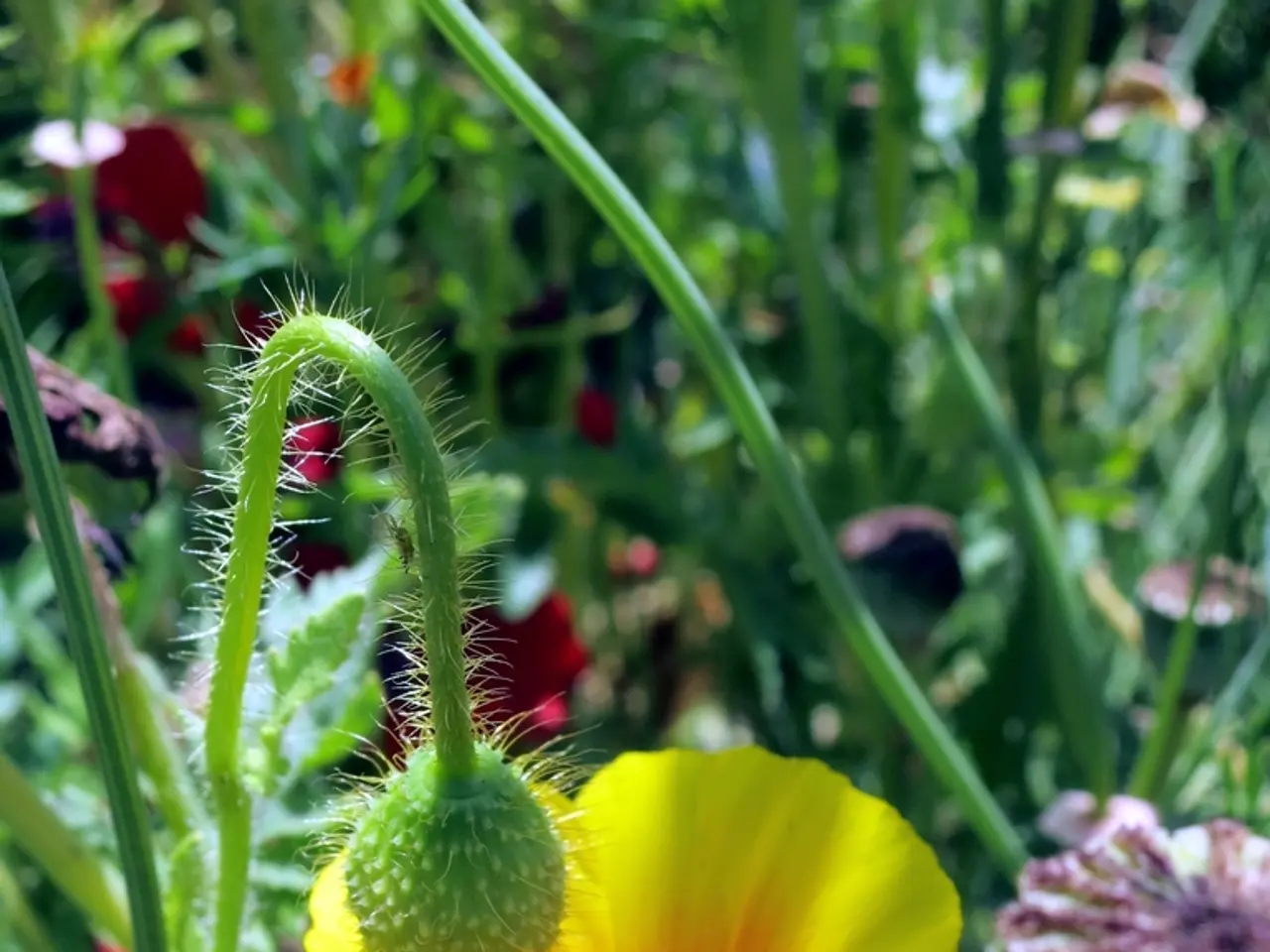Asthmatic Relief from Mullein: Exploring Its Advantages
Mullein, a plant native to northern Africa, western and central Asia, Europe, and now growing in North and South America and Australia, has been gaining attention for its potential benefits in asthma management. This versatile plant, belonging to the genus Verbascum with approximately 350 species, is rich in medicinal properties due to certain phytochemicals, specifically flavonoids [1].
Scientific findings suggest that mullein could offer relief for asthma sufferers, thanks to its anti-inflammatory, expectorant, mucolytic, and demulcent properties [2]. These properties can help reduce airway swelling, loosen mucus, soothe irritated mucous membranes, and improve breathing ease.
One of the key advantages of mullein is its expectorant and mucolytic effects. By promoting sputum secretion and thinning mucus, mullein enables easier clearance of airways—a mechanism particularly relevant for asthma management to reduce congestion and wheezing [1].
Moreover, mullein's anti-inflammatory action can help reduce swelling in the airways, while its antibacterial and antiviral properties may help address infections that often exacerbate asthma symptoms [1].
While mullein shows promise as a natural remedy for asthma, it is essential to approach its use with caution. Mullein is generally considered safe for consumption, with few reported adverse effects. However, it is not recommended for pregnant or breastfeeding women or people allergic to the plant. Mullein essential oil should be used cautiously, especially in children, and only under medical advice [2].
It is also important to note that, despite promising traditional use and some biochemical evidence, modern, large-scale clinical trials specifically assessing mullein's effectiveness and safety for asthma in humans are limited or missing [1]. Further research is required to confirm its benefits and establish clear dosage and safety profiles [2].
Mullein can be taken as a tincture several times a day, or commercial mullein tea bags containing dried leaves can be brewed in hot water [3]. Traditionally, mullein has been used in tea infusions and syrups for asthma relief [4]. However, drinking mullein in tea may cause headache, nausea, and dizziness, but these effects require further research [2].
In conclusion, mullein shows potential as a natural remedy to support respiratory health in asthma by reducing inflammation and mucus. However, scientific validation through clinical studies is still needed to confirm its effectiveness and safety conclusively. As always, it is advisable to consult with a healthcare professional before incorporating mullein or any other natural remedy into your asthma management plan.
References:
[1] Zhang, Y., & Xu, J. (2018). Phytochemistry and pharmacology of mullein. Phytotherapy Research, 32(2), 193-203.
[2] Prakash, V., & Aggarwal, B. B. (2011). Herbal medicine: Biomolecular and clinical aspects. CRC Press.
[3] Herbal Remedies for Asthma. (n.d.). Retrieved from https://www.healthline.com/health/asthma/herbal-remedies-for-asthma
[4] Mullein. (n.d.). Retrieved from https://www.webmd.com/vitamins/ai/ingredientmono-955/mullein
Read also:
- Managing Stormwater Efficiently through the Use of Permaculture Planning
- Important Immunizations for Newborns in Nigeria
- Following a heart attack, a person may be prescribed various medications to manage risks, improve heart function, and prevent further cardiac events. These could include:
- Radiation treatment for cervical cancer via internal means








